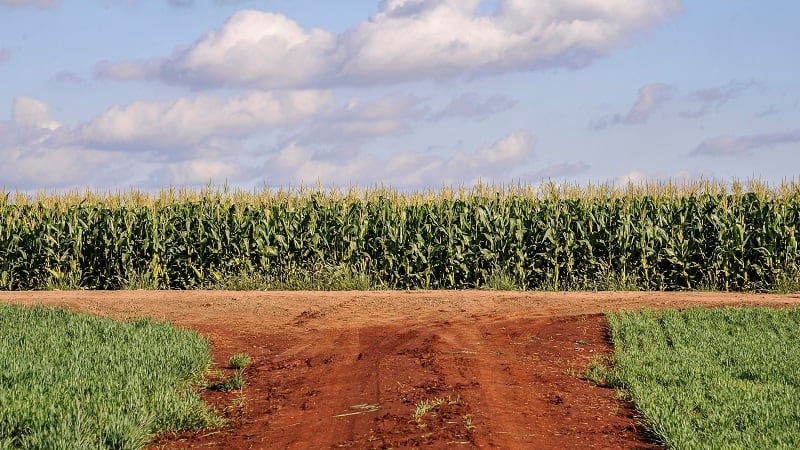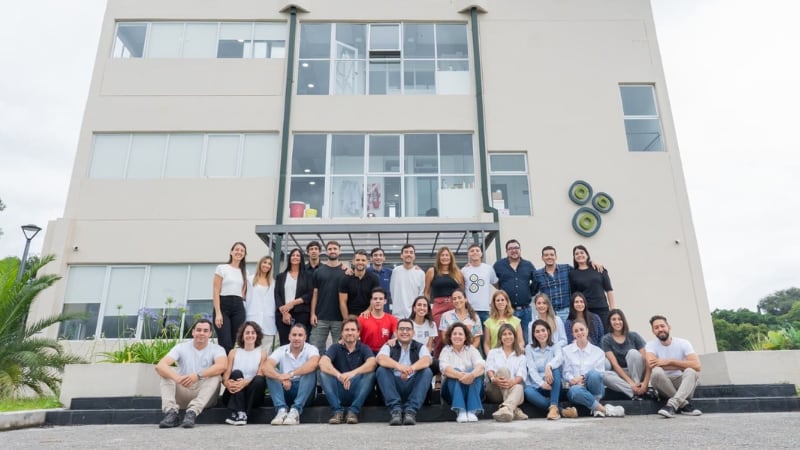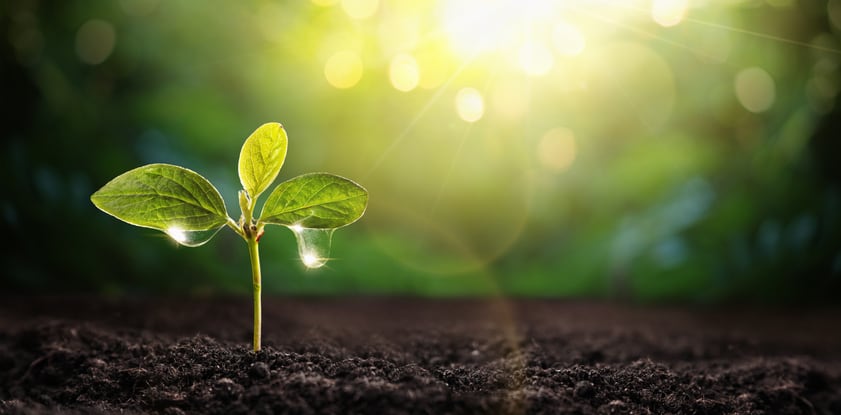British Columbia-based Lucent Bio is preparing to enter the Brazilian market within weeks, following research that validates the company’s fertiliser effectiveness, Michael Riedijk, CEO and founder of Lucent Bio, told AgTechNavigator.
Founded in 2014, Lucent Bio uses cellulose waste from food processing as a carrier agent for plant nutrients, like iron, zinc, boron, magnesium, and copper, Riedijk explained. The fertiliser does not dissolve in water, instead, the soil microbiome breaks down the cellulose to deliver the plant nutrient in a bioavailable form, he added.
Currently, Lucent’s Soileos fertiliser is available across Canada and the U.S. Midwest, with the company focusing on corn and soybean farms in Michigan, Minnesota, and Iowa, Riedijk said. The agtech company also offers a seed coating called Nutreos and a biodegradable and controlled-release fertiliser Agreos, which is projected to be commercially available in 2027.
The sustainable fertilizer company is preparing to enter the Brazilian market and is conducting field trials and registering its products in the region, and expects to announce its first retail partner in the country soon, he added.
“We see Brazil as our next target market for several reasons. Obviously, [Brazil] is a very large market. There is a lot of broad-acre corn, soybean, and sugarcane production, and the soil conditions are perfect for our products because they are typically deficient in zinc and boron, which is exactly what we’re selling ─ slow-release boron fertilisers. We have been working on business development here. We are doing trial programs with Embrapa, which is the largest tropical research institute in the world,” Riedijk elaborated.
Soileos’ potential for growing climate-neutral, climate-positive crops
Lucent’s commercialization push is bolstered by a recently published research paper in the Open Journal of Soil Science about the carbon sequestration benefits of Soileos and Nutreos, Riedijk said. The 18-month research project was made possible with support from winning the THRIVE | Shell Climate - Smart Agriculture Challenge during the 2023 SXSW event in Austin, which included a $500,000 grand prize.
The first part of the study was conducted in a greenhouse with spring wheat, controlling for conditions like temperature and moisture, according to the study. The researchers measured carbon dioxide and nitrous oxide emissions, soil carbon levels, and above-ground biomass, with the help of sensors provided by Shell.
Lucent and the researchers conclude that they could sequester 1-5 tons of carbon per acre and improve crop yields by 10-20% using Soileos, he said. Then, the researchers conducted 16 field trials with different types of crops, where they found that the fertilisers reduced 2.3 tons per acre, with crops like oats being much higher, he added.
The amount of carbon sequestered from the fertiliser “is about the same as the infield carbon footprint of crop production,” Riedijk pointed out.
“If you add up all the carbon footprint, fertiliser application, and the combines, and all the work that is done on the field that is somewhere between one and three tons an acre. So, what it means is using, in this case, our product, you could theoretically compensate for that in-field carbon footprint and grow wheat or canola or corn that is climate neutral, or even in certain cases, climate positive,” Riedijk elaborated.
With commercialization ramping up, Lucent is working to close its next round of funding by the end of this year. The agtech company raised $4.2 million from Emmertech, Amathaon, SVG Ventures, WUTIF Capital, Vantec/eFund, and Vancouver-based angel investors in 2021 and received a separate $3.6 million investment from PacifiCan to scale Nutreos.





